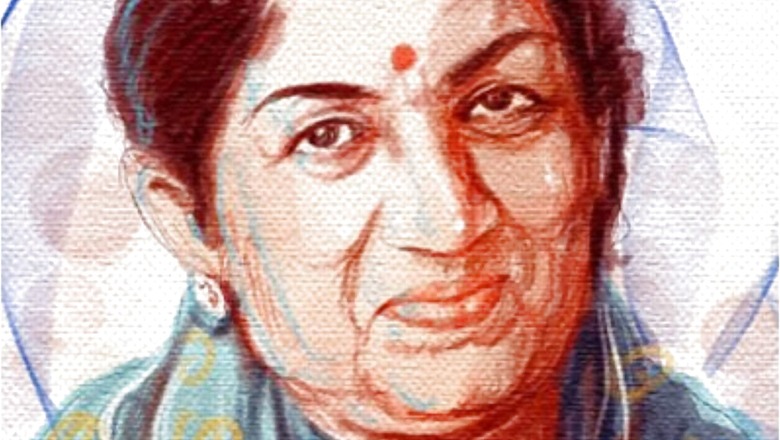
views
Those upset with The Recording Academy for omitting Lata Mangeshkar from its In Memoriam section at the Grammys would do well to blame America’s cult of ignorance rather than imperialism. As Isaac Asimov wrote so famously in 1980, ‘The American right to know’ is meaningless in a country that worships anti-intellectualism. In practice, it merely means that my ignorance is just as good as your knowledge.
So how does it matter to them that Lata Mangeshkar sang a record number of songs, or that she entertained millions across the world with the purity of her voice, or that her powerful songs were part of the cultural firmament of many lives? Most Americans simply don’t know. It’s also because their pop culture is global whereas ours, despite our belief in soft power, remains largely limited to the diaspora. America’s unrivalled prosperity through the 20th century has meant that everything it does is of interest to the world.
Fatima Bhutto may write endlessly about the rise of the East and the emergence of cultures from the East to challenge American supremacy but it will take many more boy bands from South Korea and many more soaps from Turkey to take over the imagination of the world.
It is quite simply a matter of distribution. American movies and music travel the world and are shown in theatres and homes across the world because of the sheer size and scale of their industry. The widest release of a Hindi movie is usually 4,000 screens. Even a massive hit like RRR, which has already raced to Rs 1,000 crore at the box office, was released in a mere 7,000 screens across 60 countries. On the other hand, a typical Hollywood blockbuster like Spider-Man: No Way Home was released in 39,000 screens across 60 global markets. American pop culture is so ubiquitous that more people end up caring about the Kardashians than their own neighbours, and more people globally know about Lady Gaga than Lata Mangeshkar.
America recognises those who succeed on its terms. A.R. Rahman was not considered the global genius that he undoubtedly is until he composed the soundtrack of the little big hit Slumdog Millionaire in 2008. It’s interesting too that it was ‘Jai Ho’, a song rejected by Subhash Ghai (who was planning to use it for his 2008 Salman Khan-starrer Yuvvraaj), that became emblematic of his success. India’s own market is so vast and disparate and there are so many boundaries to cross inside the country that looking at a market outside India, or at least beyond the diaspora, requires taking a gigantic leap of faith.
One Indian-American who was honoured during the In Memoriam, and who has largely escaped attention, is Bhaskar Menon. Menon was a global music executive, and at one point extremely powerful as the first chairman and CEO of EMI Music Worldwide in the days when record sales were still the markers of success. He was responsible for hits such as Pink Floyd’s ‘The Dark Side of the Moon’ (1973) and as chairman of EMI Films, movies such as A Passage to India (1984). He was 86 when he died in 2021 but there was hardly a mention of him in the Indian media. Menon exemplifies the idea that Americans recognise talent only when it makes it big on their turf, whether it is the Beatles or Pandit Ravi Shankar or even India’s newest Grammy winner, Ricky Kej, who collaborated with Stewart Copeland, formerly of the band The Police, to win the Best New Age Album. This is Kej’s second Grammy in the same category. His first win was in 2015.
One thing to learn from The Recording Academy should be the names they have honoured on their website, which range from legends like Lata Mangeshkar and Bappi Lahiri to musicians we have forgotten in India, from the great Vanraj Bhatia who composed music for so many Shyam Benegal classics to tabla maestro Badal Roy, from violinist Prabhakar Jog to Neil Nongkynrih who founded the Shillong Chamber Choir. The Recording Academy that has presented the Grammys since 1958 comprises musicians, producers, recording engineers, and other musical professionals. The Grammys believe in diversity and inclusion, just as the Academy of Motion Picture Arts and Sciences do at the Oscars but their idea of inclusion doesn’t necessarily include parts of the world that still maintain their cultural independence and have markets big enough to justify it.
At least for now.
The author is a senior journalist and former editor of India Today magazine. The views expressed in this article are those of the author and do not represent the stand of this publication.
Read all the Latest Opinion News and Breaking News here




















Comments
0 comment